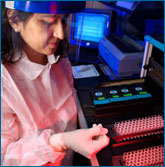Societies have changed over time, and consequently, so has science. For example, during the first half of the 20th century, when the world was enmeshed in war, governments made funds available for scientists to pursue research with wartime applications — and so science progressed in that direction, unlocking the mysteries of nuclear energy. At other times, market forces have led to scientific advances. For example, modern corporations looking for income through medical treatment, drug production, and agriculture, have increasingly devoted resources to biotechnology research, yielding breakthroughs in genomic sequencing and genetic engineering. And on the flipside, modern foundations funded by the financial success of individuals may invest their money in ventures that they deem to be socially responsible, encouraging research on topics like renewable energy technologies. Science is not static; it changes over time, reflecting shifts in the larger societies in which it is embedded.



Here, we'll briefly examine a few of the many ways in which the larger society influences science. You can investigate: Supporting science Meeting society's needs Shaping scientists Or just click the Next button to dive right in!